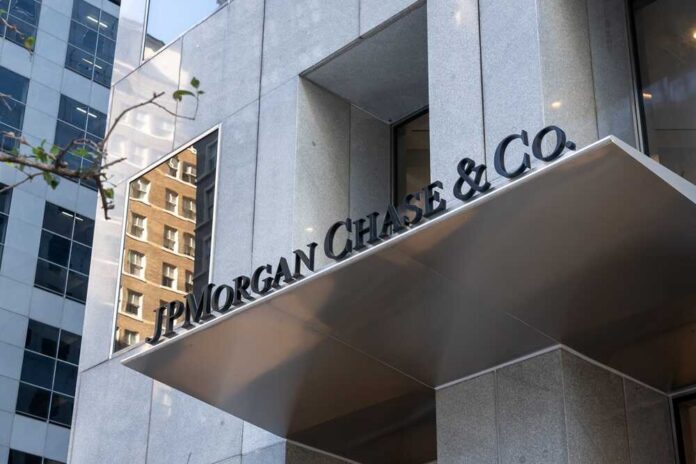
Wall Street giant JPMorgan Chase vehemently denied it has systematically cut services for conservative religious organizations, but that assertion has been challenged by those affected by its actions.
The chairman of the National Committee for Religious Freedom, Sam Brownback, confirmed that his organization was cut off from banking services by Chase Bank. The financial firm has drawn backlash for ending its business relationship with the advocacy group.
The account was terminated just three weeks after it began. That move came after the bank asked the nonprofit group to hand over a list of their major donors and the standards they use to determine which candidates they support.
This led to a resolution to be presented at the JPMorgan Chase annual shareholder meeting in coming days.
David Bahnsen is the founder and chief investment officer of The Bahnsen Group. His resolution demands the business reveal how its leadership deals with discrimination against clients pertaining to their religious or political affiliations.
JPMorgan Chase Denies They Debanked Religious Groups. Head Of Impacted Nonprofit Responds. https://t.co/OyB0UNID0J pic.twitter.com/qhJSOgPdvk
— Daily Wire News (@DailyWireNews) May 11, 2023
Along with investor pressure, there are also political repercussions to the banking giant’s alleged blackballing of conservative groups. Nineteen Republican attorneys general recently informed JPMorgan Chase that they are closely watching for signs of religious or political discrimination.
Led by Attorney General Daniel Cameron of Kentucky, the group addressed a strong letter to Chase CEO Jamie Dimon. It asserted that the firm “persistently discriminated against certain customers due to their religious or political affiliation.”
In a statement, Cameron declared that “Chase cannot call itself ‘inclusive’ and say that it ‘opposes discrimination in any form’ while simultaneously disenfranchising its clients over religious and political differences.”
As for the pending resolution, the board of directors urged shareholders to reject the measure. It deemed the proposal “based on allegations that are not true” and claimed the firm does not discriminate based on politics or religion.
The company also asserted that it questioned criteria for donors and supporting political candidates simply to comply with federal banking guidelines “to prevent money laundering and terrorism.”
Brownback, the former Kansas governor, and U.S. senator, told the Securities and Exchange Commission that Chase’s track record contradicts their claims. He called the bank’s reasoning “preposterous.”













